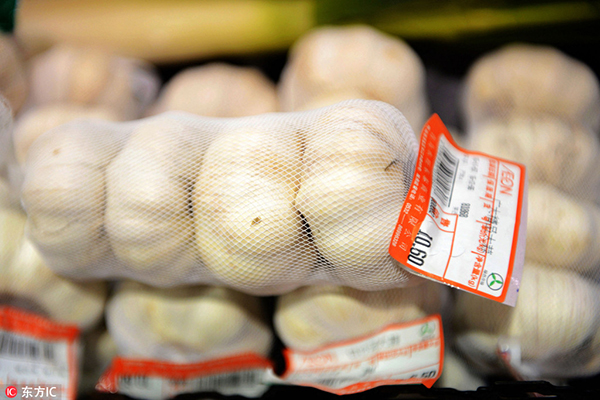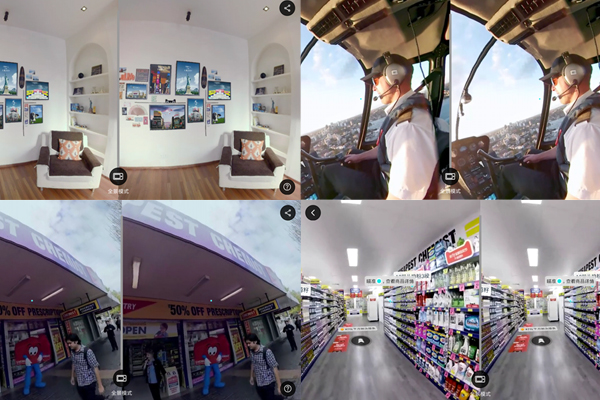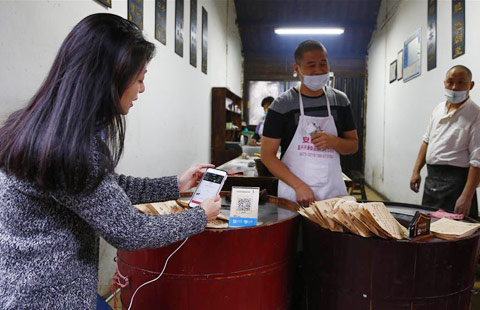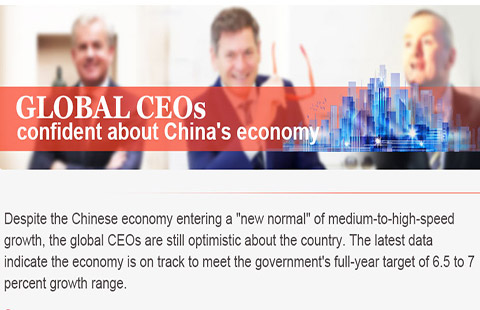Soaring garlic, coal prices hint at short-term inflationary pressure
 |
|
Garlic. [Photo/IC] |
BEIJING - China's key inflation gauge consumer price index grew at its fastest pace in six months in October as food prices rose, while factory prices beat market expectations to accelerate to a 55-month high, fanning concerns of inflation.
The October CPI data ended previous drops in the past five-consecutive months starting from 2.3 percent in April, when the CPI hit its highest level since July 2014, according to the National Bureau of Statistics (NBS) on Wednesday.
The producer price index (PPI) rose 1.2 percent year on year, the fastest pace since December 2011 after negative growth for the previous 54 months by rising 0.1 percent in September.
In addition to the lower comparison base of last year, food prices rises fueled faster consumer inflation in October. Food prices rose 3.7 percent, compared with a 3.2 percent gain the previous month.
The recent soaring garlic price is a case in point. The whole sale and retail price of garlic surged by 90 percent and 67.9 percent in October year on year, while month-on-month growth was over 6 percent and about 5 percent respectively.
Meanwhile, the acceleration in PPI growth is closely linked to higher prices in some key industries like coal mining and washing, according to a NBS statement.
Prices in the coal mining and washing industries increased 15.4 percent year on year, the highest since July 2012, while ferrous metals metallurgy and rolling saw a price increase of 13.1 percent over the previous year.
The Bohai-Rim Steam-Coal Price Index, a gauge of coal prices in north China's major ports, rose to 607 yuan per ton last week, the 18th-consecutive rise and over 60 percent up from the start of the year.
The rising CPI and PPI, evidenced by garlic and coal prices jumps, raised concerns of short-term high inflation.
The price of pork, a key consumer price driver, could rebound in the future after falling since June and factors including rising prices of coal and steel might lead to continuous rises in PPI, according to Deng Haiqing, chief economist with JZ Securities.
However, Shi Dalong, analyst with Suning Finance Research Institute, said it was too early to be predicting inflation.
Shi pointed out that the vegetable shortage and other agriculture produce price rises could be due to natural disasters and speculative investors while China's overcapacity cut campaign contributed to coal price hikes.
There would be some short-term inflationary pressure, but as property and car purchase demands fall due to policy changes, the overall price level would run within a proper range, Shi added.
A string of Chinese local governments have rolled out policies to rein in speculative property sales and purchases last month, which might cool demand for steel and coal, while a preferential tax policy for small-displacement vehicles will expire in the end of this year, weighing on future car demand.
In its latest policy report, China's central bank expects inflation to remain stable in the long run, but under upward pressure due to property price hikes in the past few months.
China will stick to its prudent monetary policy, with an appropriate degree of flexibility and timely pre-emptive adjustments, the central bank pledged.






















